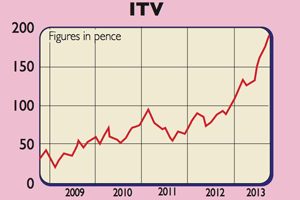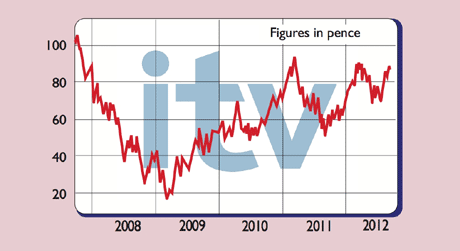Get the latest financial news, insights and expert analysis from our award-winning MoneyWeek team, to help you understand what really matters when it comes to your finances.
You are now subscribed
Your newsletter sign-up was successful
Want to add more newsletters?

Twice daily
MoneyWeek
Get the latest financial news, insights and expert analysis from our award-winning MoneyWeek team, to help you understand what really matters when it comes to your finances.

Four times a week
Look After My Bills
Sign up to our free money-saving newsletter, filled with the latest news and expert advice to help you find the best tips and deals for managing your bills. Start saving today!
The media mogul is going on an $80bn shopping spree to grow his media empire.There's a big global media shake-up going on, says Simon Wilson.
What's happened?
Last week, media giant Time Warner rejected an $80bn takeover bid from Rupert Murdoch's rival group, 21st Century Fox. Time Warner, which took years to recover from its disastrous merger in 2000 with AOL, says it sees "significant risk and uncertainty" in a Fox bid. It questioned Fox's "ability to govern and manage" the combined group a Goliath that would be rivalled only by Disney.
The company has also changed its by-laws in a move designed to block a potential hostile takeover scrapping a rule that lets a combination of investors who hold 15% of the company requisition a special shareholder meeting with the board.
MoneyWeek
Subscribe to MoneyWeek today and get your first six magazine issues absolutely FREE

Sign up to Money Morning
Don't miss the latest investment and personal finances news, market analysis, plus money-saving tips with our free twice-daily newsletter
Don't miss the latest investment and personal finances news, market analysis, plus money-saving tips with our free twice-daily newsletter
Big investors can still call such a meeting, but only if they hold 15% on their own. That's a significant defensive move, which has angered big shareholders some of whom are open to the idea of a bid and makes a prolonged, bitter battle more likely. That said, many in the market fully expect the battle to end in a deal.
Who, for instance?
Hedge-fund investors they piled into Time Warner shares last week, sending them above the $86-a-share that Fox's cash-and-stock bid was worth. According to veteran Murdoch-watcher Michael Wolff, the Fox boss and Time Warner head Jeffrey Bewkes for all the latter's hard line in public are probably talking behind the scenes via a trusted intermediary, ex-White House staffer Gary Ginsberg.
"This is all in the media family," Wolff told USA Today. "The men may not be quite in the middle yet, but at this point, with a public offer out there, they are likely separated only by price." In any case, the tie-up talks have kicked off a renewed wave of speculation about who else might be a target in the global media and entertainment sectors.
Which other targets are out there?
We've seen a wave of tie-ups between media distributors in the US this year, with deals agreed between Comcast and Time Warner Cable, then AT&T and DirecTV. Now many expect the content side TV networks, film studios and production companies to follow suit.
CBS is the subject of frequent bid speculation, says Shannon Bond in the Financial Times. CBS would also be a logical home for CNN if Time Warner had to sell it in the event of a merger with Fox. Disney, a rumoured suitor for CNN, could also bid for Time Warner.
Who else is looking?
Discovery is already on the acquisition hunt: this year it teamed up with international cable firm Liberty Global to buy UK production company All3Media (producers of dramas such as Midsomer Murders) for £550m.
It also tried to buy Britain's Channel 5 earlier this year, but was trumped by MTV owner Viacom in a £450m deal. As with many other would-be predators, Discovery may also be a target. "If Fox finds Time Warner attractive, surely Rupert [Murdoch] would see similar industrial logic in pursuing other cable network names," reckons Nomura analyst Anthony DiClemente.
What's driving all these deals?
The scramble for content people want to watch, and the growing importance of scale in content creation and distribution. The global TV industry is being reshaped by the threat from disruptive technology. Video-streaming firms (which broadcast over the internet) are copying the successful late-1990s strategy of upmarket cable channel HBO (creators of Sex and the City and The Sopranos among other hits) and investing in their own high-quality content.
Netflix's US remake of House of Cardshas been the groundbreaker. Amazon is trying to replicate the strategy, but has yet to pull it off. As Neil Irwin put it in The New York Times: "to be successful a company needs to control either the content or the pipes. If it has neither, it's a mere middleman, consigned to low, or no, profitability." The Fox bid for Time Warner is about securing more control over the content, in order to get more leverage over the people who have the pipes.
What about the UK?
Britain has one of most obvious large media assets still onthe open market outside the US, in the form of ITV. The UK's main commercial broadcaster has pulled off a remarkable recovery since the recession of 2009, most notably with its ITV Studios division producer of global hits and formats from Mr Selfridge to Come Dine With Me.
In the past, ITV has been linked to US suitors, including NBC Universal (part of Comcast), and Virgin Media. Meanwhile, the Liberty/Discovery acquisition of All3Media should be seen as "planting a flag in the ground for a potential acquisition" of ITV, according to Liberum analyst Ian Whittaker.
Are Netflix shares just a house of cards?
Online broadcaster Netflix is no longer a "story" stock, says Lex in the F T. It now has actual profits, rather than just impressive subscriber numbers. "Operating income more than doubled in the second quarter, on sales growth of 25%." Cash flow is weak, but only because the firm is reinvesting in producing its own content. That looks a wise strategy.
Even so, the shares are expensive at $450 a pop, or 100 times forward earnings. "If the status quo revenues outpacing total expenses is sustained, the company will grow into the valuation eventually". But the wave of media consolidation makes that a big if. "Middlemen, even those with 50 million paying subscribers, can get squeezed. So can investors."
Get the latest financial news, insights and expert analysis from our award-winning MoneyWeek team, to help you understand what really matters when it comes to your finances.
MoneyWeek is written by a team of experienced and award-winning journalists, plus expert columnists. As well as daily digital news and features, MoneyWeek also publishes a weekly magazine, covering investing and personal finance. From share tips, pensions, gold to practical investment tips - we provide a round-up to help you make money and keep it.
-
 ISA fund and trust picks for every type of investor – which could work for you?
ISA fund and trust picks for every type of investor – which could work for you?Whether you’re an ISA investor seeking reliable returns, looking to add a bit more risk to your portfolio or are new to investing, MoneyWeek asked the experts for funds and investment trusts you could consider in 2026
-
 The most popular fund sectors of 2025 as investor outflows continue
The most popular fund sectors of 2025 as investor outflows continueIt was another difficult year for fund inflows but there are signs that investors are returning to the financial markets
-
 ITV takes on the streaming giants
ITV takes on the streaming giantsFeatures Britbox, ITV’s new subscription video-on-demand service, will compete with Netflix and Amazon.
-
 A new boss for ITV
A new boss for ITVFeatures The TV network is bringing easyJet’s chief, Carolyn McCall, on board. What will that mean for the two firms? Alice Gråhns reports.
-
 How our tips have fared: ITV
How our tips have fared: ITVFeatures Phil Oakley tipped television broadcaster ITV last year. Here, he takes a look at how the shares have done, and what shareholders should do now.
-
 Shares in focus: Britain’s largest TV network
Shares in focus: Britain’s largest TV networkFeatures ITV has had its problems. But could the TV network's turnaround strategy work this time, and should you buy the shares? Phil Oakley investigates.

